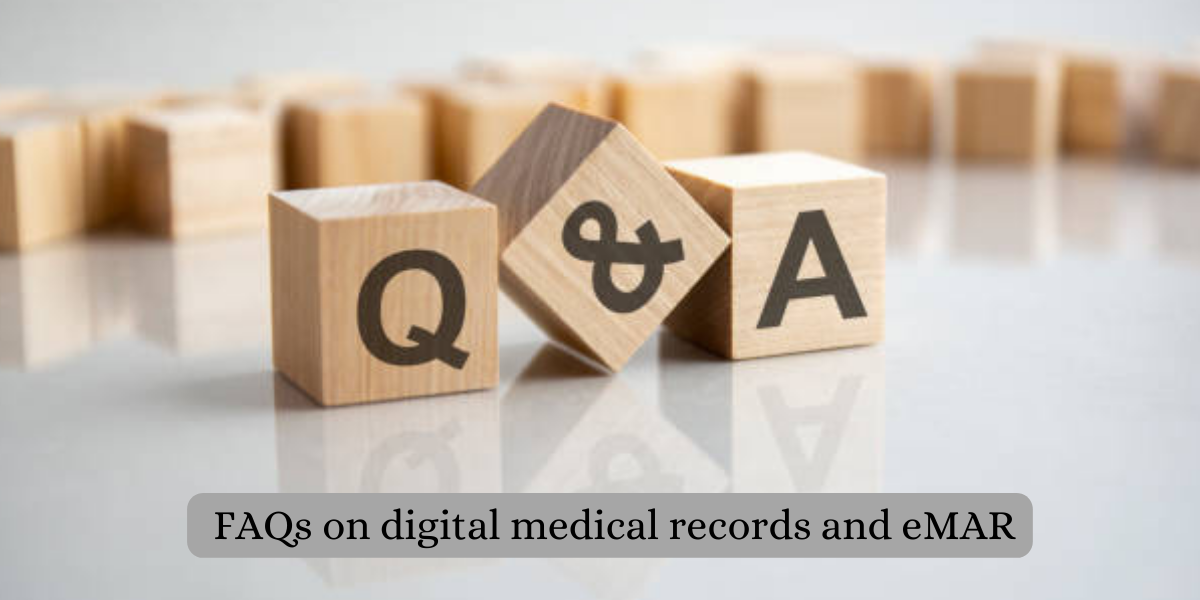Digital medical records are becoming increasingly important in healthcare settings. They provide a complete and up-to-date record of a patient’s medical history including medications prescribed, allergies and test results at the point of care. This information is essential for making informed decisions about a patient’s care. In addition, digital medical records can be accessed from anywhere, making it easy for caregivers to share information with each other and with specialists.
Here we discuss some FAQs on digital medical records:
Question: 1 What are digital medical records?
Many hospitals, care homes and respite homes use digital records to better manage care for patients and residents. A digital medical record includes important information about a patient or a resident, such as:
- Gender and age
- Medical problems
- Height and weight
- Medical test results (such as X-rays and lab tests)
- Mental health issues (such as depression or anxiety)
- Medication prescribed
- Allergies
- Billing and insurance
Question 2: What are the advantages of digital medical records?
Digital medical records offer a myriad of benefits. Some of them include:
- They give updated and complete medical information about patients and residents
- Caregivers, doctors and nurses get quick access to the records. It helps them provide a more coordinated and effective care
- Safe documentation
- Safe prescribing
- Reduced paperwork
- Patient data remains safe and secure
- Patient data can be easily shared across the spectrum of care – nurses, doctors, caregivers, and other clinicians can access the information quickly and take an informed decision
- With easy access to right information, physicians can effectively diagnose patients and residents, reduce medical errors, and provide better care
- Improves communication between the care providers and patients and residents
- Helping care providers, nurses and physicians improve productivity and work-life balance
Question 2: What is eMAR? Does it offer the benefits of digital medical records?
Electronic MAR (eMAR) is a software that not only offers caregivers important patient information but also helps the care home streamline medication administration:
Some of the features of eMAR include:
- Medical records: With eMAR, digital medical records of patients can be maintained, allowing nurses, doctors and caregivers to access important medical information quickly.
- Alerts: With alerts, the caregiver would be reminded when a dosage is due and given all the necessary information regarding the patient and the medication.
- Audits: eMAR helps caregivers prepare monthly-end reports with ease. It allows the caregivers to send the requests for restocking to the patients.
- Notes: eMAR creates digital records of all medication notes. This can help to ensure accuracy.
- Reporting: Reporting is one of the most important parts of running a care home. But, paper-based reporting consumes a lot of time. With eMAR, reports can be prepared quickly and easily.
Question 3: How does eMAR help care home staff work efficiently?
Here are some benefits of using eMAR:
- Improved workflow: eMAR helps in managing medication such as documenting administration and transcribing prescriptions.
- Enhanced access to view: eMAR provides enhanced access to view by creating centralised electronic medication administration records. This makes it easy for caregivers to efficiently perform peer-to-peer reviewing.
- Compatible and reliable app: eMAR is compatible with both android mobile and tablets. The user interface is simple and easy to use, so caregivers can quickly get started with documenting medication records.
- Similar to conventional paper-based MAR sheets: The templates of the eMAR system look similar to paper-based MAR sheets, so new care home staff members don’t have to spend much time to learn using the system. You can train your care staff on our system in 10 minutes. Book a demo today and learn how your care home can streamline medication management at your facility.
Question 4: Other than care homes, where else can eMAR be used?
eMAR can be used in a number of settings, including assisted living facilities, learning disability care homes, nursing homes, and dementia care facilities.
Question 5: How does eMAR help in reducing medication errors?
eMAR system gives caregivers access to critical information such as the identification of the patient, the dose, the name of the medicine, and the route of administration. By having this information readily available, caregivers are less likely to make mistakes when it comes to administering medications. In addition, reminders can be set on eMAR software. This way, caregivers will receive a notification whenever the medication is due. This will help to ensure that every dose is received.







